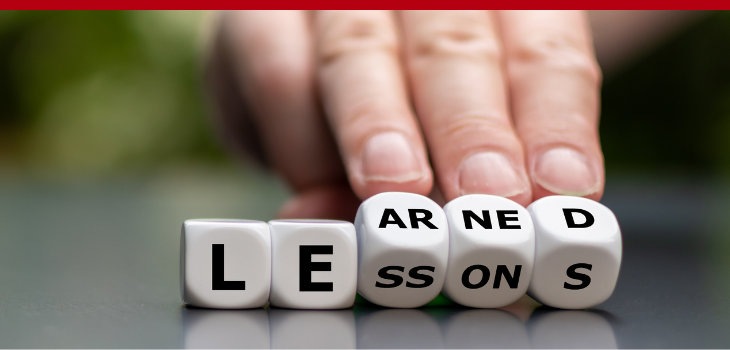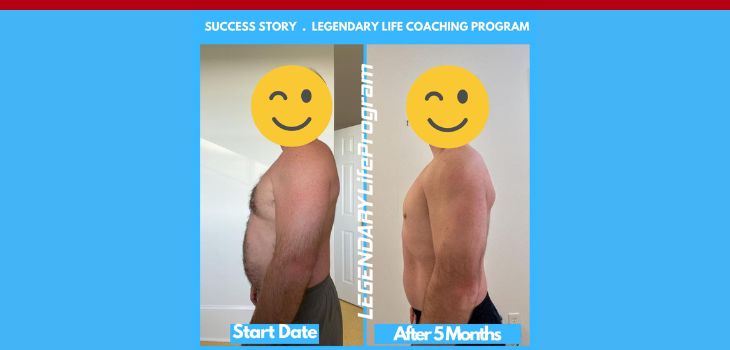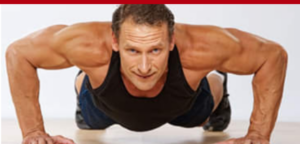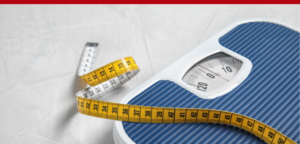Ever wondered what you’d change if you could go back in time armed with the knowledge you have now? Anything you’d do differently for your health?
Well, in today’s episode Ted is going to answer this question and will share seven things he has learned about health at 46 that he wishes he knew at 36.
He reveals the truth about a real poison that can have negative effects on the brain and sleep quality, shares tips on how to manage stress and talks about the most important type of exercise for longevity.
You will find out what to do to prevent new injuries and how you can get valuable insights into your overall health. You will also discover what is the most importance thing that influences your own health and success and will learn how to make a plan to bounce back faster after bad days. Listen now!
You’ll learn:
- A poison with negative effects on the brain and sleep quality
- How to manage stress for overall health and well-being
- The most important type of exercise for longevity
- What to do to prevent new injuries
- How to get valuable insights about your overall health
- The most important thing that influences your health and success
- A plan to bounce back faster after bad days
- And much more…
Related Episodes:
579: VO2 Max Explained: The Key to Longevity and a Healthier Life (And How To Improve It)
Zone 2 Heart Rate Training: Cardio Exercise for Longevity and Performance with Ted Ryce
Links Mentioned:
Join The Unstoppable After 40 Newsletter
Learn More About The Unstoppable After 40 Coaching Program
Schedule a 15-Minute Strategy Call with Me!
Watch My Body Breakthrough Masterclass
Connect with Ted on X and Instagram
Ready to make 2024 your best year ever?
We just opened spots for our Unstoppable After 40 Coaching Program starting this month.
Together, we’ll craft a personalized plan to reclaim your health and transform your body in a way that fits your busy lifestyle.
If you want to learn more about our program, click here!
We have limited spots, so click here to book a call now!
Podcast Transcription: 7 Life-Changing Health Lessons to Unlock Longevity and Success
Ted Ryce: Have you ever done that thought experiment: What would I do differently if I could take the information that I know now and go back in time? What would you do differently? Well, today's episode is going to be inspired by that question. The title is Seven Things I Know About Health at 46 that I Wish I Knew at 36. So, if you're curious about in my 20, almost five-year journey now, how I've progressed in the past 10 years and what I would do differently, that's what we're going to get into.
So, stay tuned. And if you're just tuning in for the first time, I'm your host, Ted Ryce. And what we do here is we produce this show for two reasons. Number one, I've been in this business for 25 years, as I just said. And I want to help you avoid the mistakes that I've made in the past. The second thing is that
We help executives, entrepreneurs, and other high performing professionals get into the best shape of their life, over 40. So, if you're looking for a program, a coaching program, that can take you to that next level, well, this podcast and my others will give you an idea of whether our coaching program's right for you or not. So, let's dive in.
And the first thing I want to tell you is the first thing I wish I knew is that alcohol is literally poison. Now I want to be clear here. I'm not shaming you. If you drink, there's no judgment about that. I used to drink heavily. I'm from Miami. I moved to Miami Beach when I was 21 years old and I did the club circuit. I was drinking three or four nights out of every week or at least it felt like every week. So
I have my past, there's no judgment here. But with recent advancements in, in the, let's say our scientific knowledge about the effects of alcohol on your brain, on what's called sleep architecture, in other words, your sleep quality at and how I wear an Oura ring and how I see on the nights where I do drink, which is rare these days, but on the nights where I do drink, I notice a big jump in my resting heart rate and a lowering of my heart rate variability or HRV.
And based on more recent evidence, it turns out that even two drinks, anything above two drinks per week before it was two drinks per day, but now it's two drinks per week can have a big impact on your brain. In fact, looking at people who are middle age who drink, if you're drinking more than two drinks, there's it's connected with a shrinking of your brain. So alcohol, as much as I love red wine, or Port, something that I've recently developed a taste for and all the time I've spent in Portugal, it's a poison. Again, no judgments there. I'm not saying you're a bad person or anything like that. But I am saying there's no amount of red or not just red wine, but any type of alcohol that's healthy for you. It's not health producing, it takes away from your health. And again, what the best research shows is that yeah, you can get away with two drinks or less per week, but anything beyond that, it's going to increase your risk of negative effects to your brain, to your health.
And more specifically, by the way, with what we're talking about on this podcast so often with fat loss, what happens is that it disrupts your sleep architecture. And if you track your sleep like I do, like I mentioned earlier, if you use an Oura ring or a whoop band or have a Garmin, you'll see that your sleep is disrupted.
Whenever I drink, my restlessness goes up. It becomes harder to sleep for longer periods of time. And I wake up earlier than usual. And as a result, two things happen. I am less motivated to do anything that day. I'm definitely not hitting any personal records in the
And those are the days that if I do make it to the gym, I take it easy. The other thing that happens is that it increases for whatever reason, some people, it increases their appetite. And what do you want to eat? Again, you're not looking for the superfood salad, you're looking for hyper palatable foods, you're looking for the burger, the pizza, something that is going to stimulate the reward centers of your brain. So again, alcohol can be delicious.
I love a good red wine, as I said, Port, those are my things these days, I used to enjoy scotch. And maybe if you pour me a blue label, I'll have, you know, half a shot. But understanding that it comes to a cost to health.
And one other point I'll add about that is I really like to schedule my drinking on in a time of my life when I'm doing really well on vacation, enjoying myself. When I was in Italy recently, I was drinking the house wine. The house wine at some of these restaurants was just I thought it was in incredible. Not a big wine connoisseur as you might can tell but I've tried a lot of different wines and I really like the house wine.
So I try to time my alcohol consumption where I have a lot of room to rest no big pressure to produce in my business or get things done or big workouts. So that's it. Alcohol is a poison and it comes at a cost. The second one is stress management matters. This is so important because when I was in my 20s, I didn't care about stress and in my 30s, I started to think that there might be something to it. But now in my 40s, I manage my stress proactively. I get a massage every week. Why?
Because I know during that massage, I'm not going to be staring at my phone. I'm not going to be watching TV, I'm going to be laying down, I'm going to be deep breathing, getting really relaxed. And it's time where I get to disconnect from technology, listen to some nice spa music, and have that human-to-human touch.
Hopefully it was someone super skilled that can help release those tight muscles. And in fact, I got a 90-minute massage last night and whether it's a massage or meditation or a float tank time, in nature, or a vacation, it's really important to have things scheduled, something that you can do in your weekly, monthly, quarterly routine that you can turn to, to improve your management of your stress.
And since I've done this, I've been in a better mood. I get more done. I feel like I respond better in my workouts. And again, it's just something that also I feel helps with my sleep at night. And we know stress is a big influencer of your ability to get in shape.
If you're hitting those hard workouts while you're super stressed it raises your likelihood of getting an illness or getting injured. That's what the research says so the best way to measure stress is something like an Oura ring or a whoop band. I pay attention to my sleep quality, my resting heart rate, and my HRV, that heart rate variability. And I make sure I do things that get me trending in the upward direction for my HRV, the down direction of my resting heart rate, and an improvement in my overall sleep time and sleep quality.
So, the third thing is that cardio is more important than weights as you age. That might come as a shock if you've listened to the show for a while because I preach the benefits of how lifting weights, it needs to be foundational. And if you're looking to lose fat, there is hands down, the best type of exercise you can do is lifting weights.
So, if you've heard me say those things, you might be asking yourself right now, why are you talking about cardio when you preach lifting weights so much? And what I want to tell you is, yes, lifting weights is that key to fat loss. It's foundational to keeping your muscles and joints strong and healthy.
It's a must do. And as you get older, it becomes more important to once you start having this, this consistent weight training routine to start working on what's called your VO2 max, that's what your ... or a cardiorespiratory fitness. So cardiorespiratory fitness is your cardio and a VO2 max is a measurement of your cardiorespiratory fitness, is the gold standard measurement of how fit you are
And what I want to tell you is this, you can make gains with muscle up until your 60s. You can make gains with strength up until your 60s. When it gets, when you get into your 70s, it gets a bit tougher to do. Uh, you, the best research we have from power lifters is that they start to decline in strength as they get into their 70s. But VO2 max, it starts lowering quite fast, quite early in life.
And so, what we want to do is not just boost it as high as possible early in life, but to boost, but to maintain a high VO2 max as we get older. And certainly, if you haven't been training cardio, and you know, it's been on and off for you, or you haven't had a cardio program, like what I give my clients in my coaching program.
It's something that you want to pay attention to. So, getting your VO2 max tested, and then having a program that boosts it is what you want to do after you dial in your calorie deficit, get some consistent weight lifting going on, then you have to ask yourself, okay, what's that next level?
And it's focusing on your VO2 max. And the way you do that, the way you raise it, the way you improve it is through cardiovascular or cardiorespiratory training. The fourth thing I do now is I deal with injuries immediately. In the past, I would search on YouTube and do some Google several these days I would look on PubMed and what are the best approaches for handling injuries. And what I want to tell you is I get on injuries right away. If I have something that I feel is a
I try to take care of it with ice. I don't use non-steroidal anti-inflammatories like naproxen or Advil, I stay away from that stuff. I figure if I need to turn to that, I will maybe every once in a blue moon, but I will not use that stuff regularly because what can happen is you're not solving the underlying issue.
So, you must figure out what is causing this problem and you must make changes to deal with it. Is it poor sleep? Is it that you're too stressed and you're training too hard? What is causing it? Is it just your program in general?
So, I get on injuries right away and I get myself to an orthopedic doctor or a physical therapist or both to deal with it. In fact, something I'll be talking about in coming up is that I'm going to be having stem cell injections in some of my more problematic joints, and I'm going to be reporting back to you on that. And what, why this is important is things get worse over time as we get
And some things, for example, some meniscus tears, if you don't get them fixed, it leads to a big increase in the chances of having a total knee replacement, as an example. In case you don't know, your menisci are pads of cartilage in between your femur and tibia, your knee joint, in other words, what most people would consider their knee joint.
And so, dealing with that right away can save you from having a total knee replacement in the future. So don't put things off if you're having these injuries, if you're having problems, and they seem to be getting worse, and you can't figure it out.
And you've been YouTube being and listening to podcasts like this, get evaluated and get proper treatment, understand number one, get it assessed to make sure you understand what's going on and then making an evidence-based decision. In other words, sometimes surgery doesn't lead to anything better than a placebo.
In other words, there's, for example, rather, there are surgeries for the shoulder for something called subacromial impingement that people just don't get better when they have the surgery or not better enough compared to people who don't get the surgery. So, there's some surgeries that you want to avoid because they're just not evidence-based. And there's other surgeries like the one that I mentioned, having a root meniscal tear, having that dealt with can really save you in the future. So don't do that. Make sure, don't put things off.
My father also did that. He suffered tremendously as a result of putting things off. He thought he could make it to 65 and have Medicare pay for a lot of things. And it ended up being a really bad strategy for him that cost him quality of life and the ability to do things that he loved, like walk. So don't put those off, deal with injuries immediately and get proper treatment.
Number five is track your health with metrics. Don't just guess. I run across people and I can't believe sometimes, people in their 40s, 50s, and people are saying, well, I'm pretty healthy. The doctor said I'm pretty healthy. I'm like, you're obese and you have high blood pressure and you have high blood sugar. There's nothing healthy about you, right? There's nothing healthy about you. If...
Well, you know, obviously that's a bit of an extreme thing to say. Of course, there are healthy things about you. But what I'm saying is you are going in a bad direction and the metrics are clear on that.
So, making sure that you have your body fat done, your blood work and your VO2 max and doing those yearly at a minimum is super important. Clients. It's so funny when I have clients who tell me, look, I feel pretty good.
It's like, well, let's have your body fat test. Let's get you a full workup with your blood. And let's see what your VO2 max is. Let me tell you, people get motivated to change. And I say that because we need that reality check sometimes and you can get it from testing and tracking important health metrics.
So, you don't leave it up to how you feel because the truth is, if you're a high performer like I am and like so many of my clients are, or all of my clients really, we can overcome discomfort. We're quite good at it. And that's a problem. It's great for mental toughness and getting things done in life.
The dark side of that is it can cost your health in the process. And it's very hard to go back and undo damage. You're going to have to wait for cellular reprogramming technology and all the other medical breakthroughs to hopefully come in the next decade.
But there's no reason to suffer and even if those things are available, it's still important to learn how to take care of yourself and taking care of yourself starts with getting an assessment, tracking your metrics. That's what I do, that's what my clients do, that's what we have our clients do. And apart from those things that I mentioned, having your HRV, resting heart rate, workout progress, and sleep quality.
Those are other things that are really important to measure too, if you're into optimization. And as the old Peter Drucker quote goes, you can't manage what you don't measure.
Number six is surround yourself with winners. Not only do I believe that if we spend time with people who are fit, healthy, and financially successful that we will be more fit, happy, healthy, and financially successful. There's even research that shows we have a tremendous effect on who we hang out with and they have a tremendous effect on us.
So, you're more likely to get divorced if you're hanging out with people who are divorced. You're more likely to get obese if you're hanging out with people who are obese. And I'm not saying to drop your family and friends if they happen to have some situations, some circumstances or habits that aren't in alignment with what you view as healthy or what you want for your own life.
What I'm saying is make sure you buffer who you hang out with by finding some people who are on the same path as it's the old thing that our parents all told us, or at least mine did, that they were always concerned about who I was hanging out with.
And I always thought it was the biggest load of crap. Ironically, mom and dad were right. It's one of the most important, if not the single most important thing that you can do to either put yourself in a good or bad.
So do an inventory of who you're hanging out with. Are you hanging out with people who you respect, who exhibit habits that you want, or in places that you want to be in, who have lives that you want, that you want to model after, your friends and family will determine your future. Who you hang out with will determine your future.
Number seven is that bad days happen. And it's so interesting. I remember when I was doing well with lifting and jujitsu training and just feeling on top of the world and then I would get injured or I would get sick and it would take me out of the game for a while and I felt so depressed when that would happen, so dejected.
Now I don't mean depressed, like clinically depressed. I had to go into therapy and take mood altering medication, nothing like that, but I felt
Now I understand that's part of life and I can be doing quite well like I was in October of 2023 and still got so bad days happen, you will get sick, you will have some injuries, you must have a plan for them.
You must have tools, habits, and routines that will help you get back on track when you fall off the health wagon. So now what do I do? I know, okay, well, some of the things that I've talked about, I make sure if I do have an injury or struggling with something, I take time off, go see an expert who can help me, I make sure I take
If I'm sick, oh, that happened to me recently, I know that it's going to take a while for me to come back. I know that exercise is the key to coming back. But I'm not going to be able to jump into my intense weightlifting and high intensity interval training routine right away, I'm going to have to go step by step and now it's happened enough to me. So, I have a plan to do it. I bounce back fast versus some people
They take a long time to get back because they're kind of still upset about the fact that they were thrown off track. And again, what I want to tell you is you must have a plan for this. The tools, the habits, the routines that will help you get back on track fast. Or you could even throw in expert What I want to tell you is failing to plan is planning to fail.
And it's not that you're going to fail per se and never get back on track, but it is going to be a situation where it's going to take you longer to get back on track because of your mindset, because of your level of preparation. So that is it for today's episode. And I want to ask you what hit home for you in today's episode? Was there something that you learned that you want to start doing?
Or did it bring up some lessons for you, things that you did 10 years ago that you think very differently about now? And of course, if this hit home for you, would love for you to share it with someone who you think would benefit from hearing it. That is it for me today. Hope you have a great one and speak to you on the next.
Sign up to receive email updates
Enter your name and email address below and I'll send you periodic updates about the podcast.








